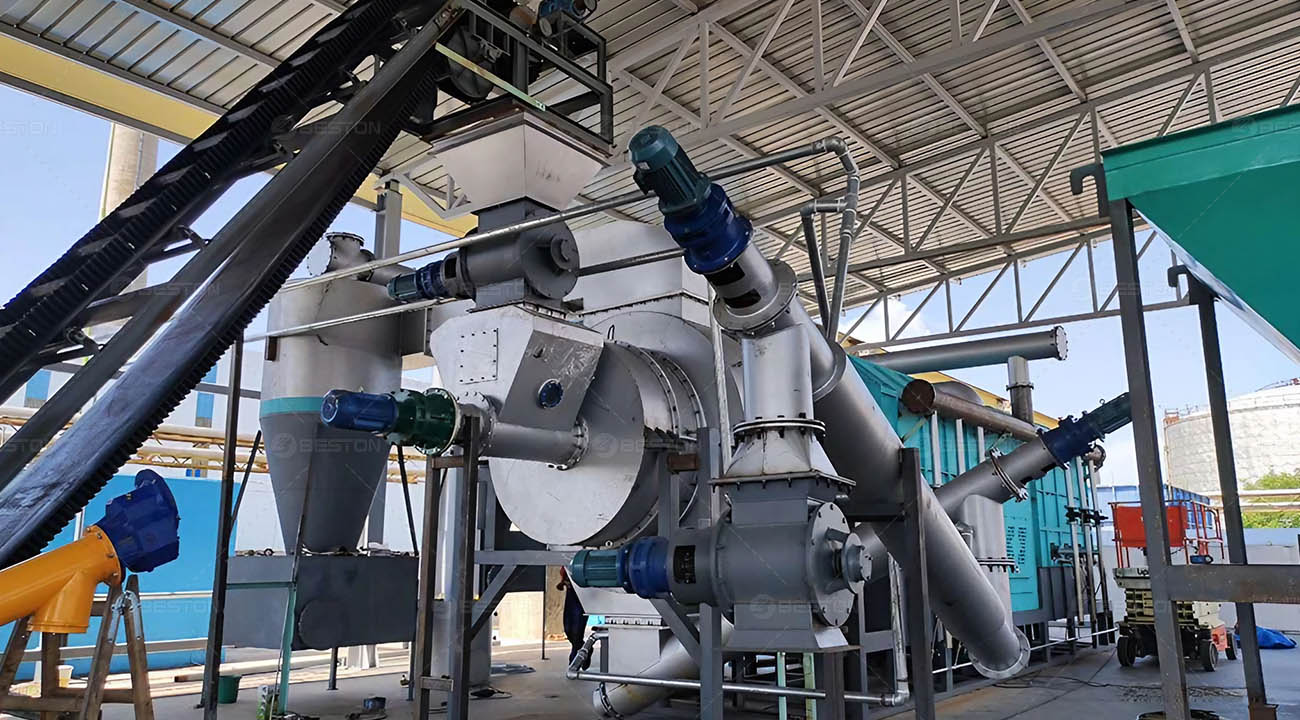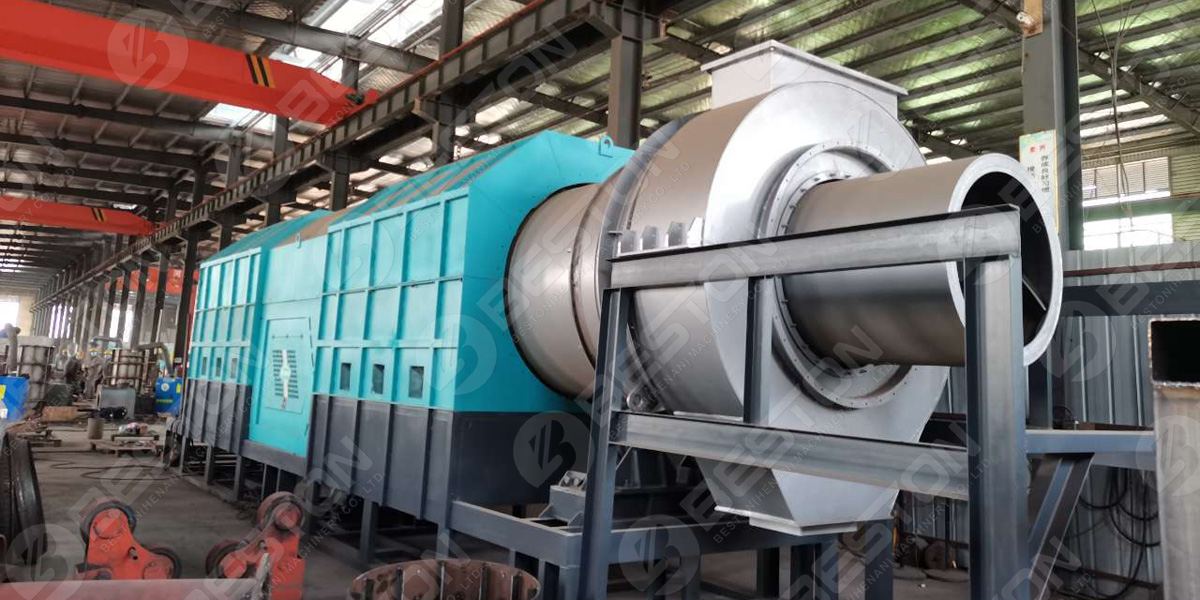Introduction
Agricultural biomass is a critical component of our world, with its role extending far beyond crop production. The disposal of agricultural residues and biomass waste presents both an environmental challenge and an untapped opportunity. This article explores the profound impact of charcoal making machines in transforming agricultural biomass into a valuable resource.
The Science of Agricultural Biomass
Defining Agricultural Biomass
Agricultural biomass encompasses the plant and crop residues left behind after harvest. These residues, often seen as waste, include everything from stalks and husks to shells and peels. Yet, these materials are rich in potential.
The Composition of Agricultural Residues
The composition of agricultural residues varies, with cellulose, hemicellulose, and lignin as the primary components. Understanding this composition is crucial to unlocking their potential.
The Environmental Impact of Biomass Waste
The haphazard disposal of agricultural biomass waste can lead to soil degradation, air pollution, and even methane emissions. These consequences highlight the urgency of finding efficient and eco-friendly treatment solutions.
Charcoal Making Machine: A Technical Marvel
Understanding the Charcoal Making Process
Charcoal making is a thermal conversion process that transforms biomass into charcoal through pyrolysis. The process involves heating the biomass in a controlled environment, without oxygen, to break it down into its carbon-rich components.
The Components and Operation of a Charcoal Making Machine
A typical charcoal making machine comprises a reactor, condenser, and collection system. The reactor is where the magic happens, with temperature and pressure carefully controlled to optimize charcoal production.
Different Types of Feedstock for Charcoal Production
Charcoal making machines are remarkably versatile and can process a wide range of feedstock, including wood chips, coconut shells, rice husks, and even agricultural residues. This flexibility is one of their key strengths.
Charcoal’s Versatile Applications
The Traditional and Modern Uses of Charcoal
Charcoal has a rich history of applications, from heating and cooking to metallurgy and art. Today, it’s finding its place in modern technologies and sustainable practices.
Charcoal’s Role in Agriculture and Soil Improvement
Charcoal’s addition to soil, in the form of biochar, improves its structure, water-holding capacity, and nutrient retention. It’s a sustainable approach to enhancing soil fertility.
Emerging Applications in Renewable Energy and Filtration
Beyond agriculture, charcoal is gaining prominence in renewable energy systems and water filtration. Its ability to adsorb impurities and serve as a carbon source for biogas production holds promise.

Environmental and Economic Benefits
Reducing Agricultural Waste and Pollution
Charcoal making machines offer a solution to the problem of agricultural waste disposal. By converting biomass into valuable charcoal, they mitigate the environmental impact of waste accumulation.
The Carbon-Neutral Nature of Charcoal Production
One of the fascinating aspects of charcoal making is that it’s carbon-neutral. The carbon released during combustion is equal to what the plants absorbed during their growth.
Economic Opportunities for Small-Scale Farmers
The charcoal making machine for sale opens economic opportunities for small-scale farmers, providing an additional source of income while addressing waste management issues.
Challenges and Innovations
Addressing the Issue of Emissions
One of the primary challenges in charcoal production is the potential for emissions. Innovative designs and cleaner technologies are emerging to address this concern.
Advances in Cleaner and More Efficient Charcoal Making Technology
The development of cleaner, more efficient charcoal making technology is ongoing. Innovations in reactor design and temperature control contribute to sustainability.
Potential for Integrated Systems with Biomass Energy
Integrated systems that combine charcoal making with biomass energy production are emerging. These systems create a closed-loop cycle of energy and resource utilization.
Conclusion
Charcoal making machines are poised to revolutionize the treatment of agricultural biomass. They offer a sustainable solution to waste management and provide valuable resources for agriculture, energy, and more. As we look to the future, the potential of charcoal making machines to transform our approach to agricultural biomass is nothing short of remarkable, and it may well lead us toward a more sustainable and resource-efficient world.

Comments
November 7, 2023 12:46
Used to do delight in examining articles or blog posts placed here. There’re outstanding possesses many practical facts. 博奕遊戲新聞
November 13, 2023 09:42
I did so have fun with perusing content pieces circulated on this internet site. They’ve been awesome as well as a considerable amount of effective advice. kitchen renovation
November 14, 2023 13:23
You happen to be permitted to article labels, and not backlinks, until these are accredited along with in theme. 토토사이트 추천
November 18, 2023 08:47
Maintain the nice perform, My partner and i examine handful of content with this internet site and also I do believe your net website will be genuine intriguing and contains received sectors regarding great details. Practical Pie
November 22, 2023 13:16
Welcome to JC’s Hot Bagels, Burlington’s Beloved Bagel Haven! Indulge in our 27 years of bagel mastery. From classic plain to exotic flavors, each bite is a journey of delight. Join us for a morning ritual or an afternoon treat – we’ve been Burlington’s #1 bagel destination since 1996. Your taste buds will thank you! bagel sandwich near me
November 23, 2023 09:18
Quite decent, stunning, fact-filled knowledge right. Any reports Don’t sadden, and also most certainly holds true right additionally. You will frequently can result in a helpful look at. Will you indicate to We’re content?: )#) Preserve the fantastic articles or reviews. Phlebotomy course
December 5, 2023 14:13
Document thrilled along with the researching you will designed to makes precise put up impressive. Delightful adventure! california white chicken
December 9, 2023 10:54
her in fact awesome blog page. her realy content rich and then a this fantastic profession. i prefer this unique. fub-amb
December 9, 2023 13:05
nice bLog! its interesting. thank you for sharing…. Packers and Movers in Gurgaon
December 13, 2023 13:50
“Affordability meets expertise at Camile TM! Our team ensures same-day success, the industry’s highest win rate, rapid service, deluxe treatment, and guaranteed confidentiality. Camile Team, your pathway to role-playing mastery!” 롤듀오
December 19, 2023 13:20
Transform your property with Diversified Services, the roofing experts dedicated to hard work and integrity since 1988. Our continuous improvement philosophy ensures top-notch installations and repairs for commercial and residential roofs. Trust us for reliable and trustworthy roofing solutions. mulehide roofing contractor
December 28, 2023 12:57
I’m stimulated when using the surpassing together with preachy showing that you choose to create in such bit of timing. Orion Stars Online Casino